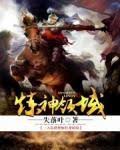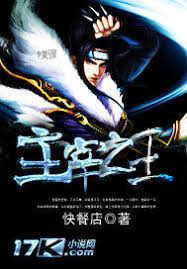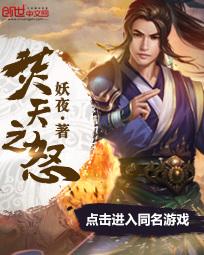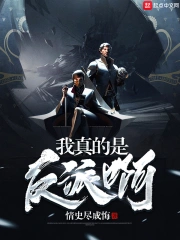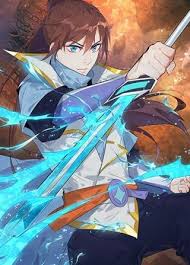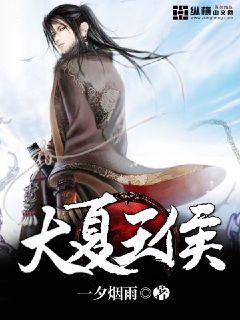The Story in 3 Sentences
A top-tier gamer, Lin Mu Yu, deletes his character to honor a real-world promise, only to be mysteriously trapped within the game world he sought to leave behind.
Armed with nothing but three forgotten skills and his encyclopedic game knowledge, he must rebuild his power from absolute zero, turning his disadvantage into a unique path of alchemical mastery and strategic dominance.
His journey escalates from surviving local threats to commanding armies and reshaping the heavens themselves, culminating in a final, cataclysmic battle that secures his legend as the ultimate Alchemist God.
Why It Stands Out
1. The Ultimate Underdog Blueprint
It takes the gamer-trapped-in-a-game trope and strips it to its most brutal, compelling core: no cheat items, no overpowered stats, just raw intellect and the desperate application of three mundane skills. The protagonist’s victory is earned through cunning, resourcefulness, and an unparalleled understanding of systems, making every triumph feel genuinely hard-won and deeply satisfying. His journey from zero to godhood is a masterclass in strategic progression.
2. Alchemy as a Weapon of Mass Creation
This isn’t just about brewing potions. Alchemy here is a dynamic, world-altering force. The protagonist doesn’t just use it for personal gain; he engineers weapons, fortifies cities, and crafts artifacts that shift the balance of entire wars. It transforms from a support skill into the central pillar of his power, offering a refreshingly cerebral and creative alternative to the standard cultivation grind. His genius lies in creation, not just destruction.
3. A World That Feels Truly Massive and Lived-In
The narrative doesn’t confine itself to dungeons or sects. It sprawls across continents, delves into intricate political machinations between kingdoms and sects, and escalates to cosmic-level conflicts. The sense of scale is immense, making the protagonist’s rise from an insignificant speck to a being who commands the fate of realms feel epic and earned. The world reacts and evolves around his actions, creating a living, breathing backdrop for his legend.
Characters That Leave a Mark
There’s Dan Feng – a cold, enigmatic figure whose sharp intellect and dragon-like heritage make him a formidable ally and a walking mystery, often appearing precisely when Lin Mu Yu faces his most complex strategic puzzles.
You’ll meet Qing Ye, who serves as a grounded counterpoint to the protagonist’s otherworldly schemes, her presence often anchoring him to the human cost of his grand ambitions and the simpler values he once held.
And Qing Mei? They’re the one who provides crucial, often unspoken, support from the shadows, their loyalty and quiet competence forming an indispensable pillar in Lin Mu Yu’s ever-growing network of influence.
The Flaws Fans Debate
The romantic subplot feels underdeveloped and tacked on, serving more as a genre checkbox than a meaningful emotional arc, which can be jarring against the otherwise strategic narrative.
The sheer length of the novel, clocking in at over 1200 chapters, leads to pacing issues, with some arcs feeling unnecessarily drawn out or repetitive, testing the reader’s patience.
The protagonist’s near-omniscient knowledge of the game world can sometimes border on deus ex machina, making solutions to complex problems feel too convenient and undermining the tension.
Must-Experience Arcs
Ch. 1–50: The Ashes of Deletion – Stripped of everything, Lin Mu Yu washes up in a sea of magma, forced to use his three basic skills to survive in a hostile, low-level zone, laying the foundation for his unique alchemical path.
Ch. 400–600: The Forge of Kingdoms – Now a regional power, he leverages his alchemy to revolutionize warfare for a struggling kingdom, crafting legendary armaments and turning the tide of a continent-spanning war, showcasing his transition from survivor to strategist.
Ch. 1200–1291: The God-Sundering Finale – Ascended to the peak of power, Lin Mu Yu confronts the ultimate, world-ending threat, wielding the Xuanyuan Sword in a battle that reshapes the cosmic order, bringing his journey full circle to a definitive, explosive conclusion.
Killer Quotes
“When you possess great treasures within you, and try to tell others of them, seldom are you believed.”
“It’s the possibility of having a dream come true that makes life interesting.”
“When we love, we always strive to become better than we are. When we strive to become better than we are, everything around us becomes better too.”
Cultural Impact
It sparked countless forum debates on the “perfect isekai protagonist,” with fans arguing whether Lin Mu Yu’s brains-over-brawn approach is the genre’s pinnacle or its most overpowered trope.
The term “Alchemist God build” became shorthand in gaming communities for any strategy that focuses on crafting and resource manipulation over direct combat, a testament to the novel’s influence on player mindset.
Despite its niche status compared to giants like “Coiling Dragon,” it maintains a fiercely dedicated cult following who praise its unique take on progression and world-building, keeping its legacy alive years after its completion.
Final Verdict
Start Here If You Want:
A masterclass in strategic, underdog progression where brains consistently trump brute force.
An epic, world-spanning adventure that evolves from personal survival to cosmic warfare.
A fresh, system-based take on the xianxia genre where crafting and alchemy are the ultimate power.
Study If You Love:
Analyzing how a narrative leverages game mechanics and meta-knowledge as its core plot device.
Exploring the thematic depth of creation versus destruction in a power fantasy context.
The meticulous, long-form world-building that turns a virtual game setting into a tangible, politically complex universe.
Avoid If You Prefer:
Fast-paced, action-heavy stories with minimal downtime or strategic planning.
Deep, emotionally driven character relationships and complex romantic subplots.
Shorter, more tightly plotted narratives without sprawling, multi-arc sagas.
